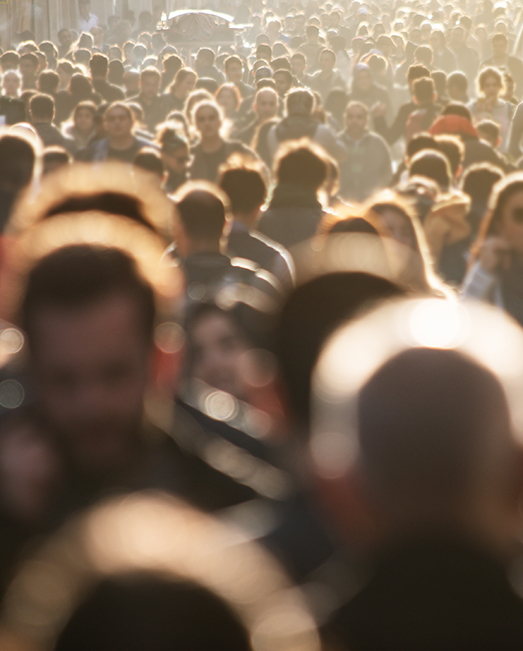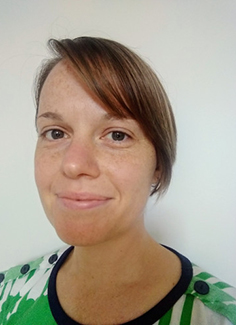Community
Copyright@ Australian Catholic University 1998-2026 | ABN 15 050 192 660 CRICOS registered provider: 00004G | PRV12008
Copyright@ Australian Catholic University 1998-2026 | ABN 15 050 192 660 CRICOS registered provider: 00004G | PRV12008

The coronavirus pandemic has forced all of us to hit the pause button on our normal lives for the good of humanity.
Kids have missed out on birthday parties. People have cancelled holidays and postponed weddings. We can’t have picnics, lounge at cafes or go to the gym. And perhaps most sadly, those who have lost loved ones have been denied the chance to give them a proper send-off.
Most of us have taken all of this on the chin, acknowledging it’s our duty to help stop the spread of the virus. But for many others, it’s hard to see the benefit of practicing home isolation.
“Some people can’t see their own individual action as having a tangible, measurable effect on the overall goal we’re trying to achieve together,” says Associate Professor Stephanie Collins, a researcher at ACU’s Dianoia Institute of Philosophy.
“The deaths of people who they don’t know, who seem to be disconnected from them, are deaths that are perhaps quite difficult to care about in a concrete way.”
Professor Collins is the author of Group Duties: Their Existence and Their Implication for Individuals, and an expert on the philosophy of groups. She says the pandemic has highlighted the value of collective action, which embraces the principles of solidarity, community and cooperation.
“We have a choice to approach this pandemic with the spirit of community, togetherness and sacrifice for the greater good.”
For some, making that sacrifice comes at a great personal cost.
“If you think about elderly people who live alone and don’t have access to technology, or people who have a very close extended family with a lot of engagement, shared childcare and things like that … for them, social isolation has a huge personal impact,” Professor Collins says.
For others, the impact might not be so great.
“It’s simply very hard for them to conceptualise their role in overall collective action, and to see the benefit of taking personal responsibility for social distancing.”
Imagine you live in a share house where you have to split the utility bills, or chip in for something the house needs. If you selfishly neglect to contribute your share, you’ve clearly committed a wrong and exploited your housemates.
“You let them go ahead and achieve some good for your house that you’re also going to benefit from, without taking on any of your own costs,” Professor Collins says.
A person who flouts social isolation rules does the same thing, on a much larger scale.
“If somebody doesn’t follow the guidelines for selfish reasons, while everyone else does, they’re exploiting the goodwill of other people for benefit of all us, just as you exploited your housemates who paid the bills.”
When you’re a member of a house of three or four people, it’s easy to see how your contribution has a tangible effect on reducing the cost for others. It’s much harder to measure with something as large in scale as the coronavirus.
“We’re talking millions of people engaging in a collective action together, and that means it’s hard to grasp how one person can make a tangible contribution,” she says.
“But regardless of the scale, it’s the same type of reasoning that we’re engaging in, and that’s why we all need to make an individual contribution”
As the lockdown begins to slow the spread of the virus, people naturally start to wonder when restrictions will be relaxed.
The temptation might be there to sneakily defy the guidelines. After all, the risk is not so great, right?
“The risk actually is great, because if everyone thought, ‘Oh, the curve’s flattening, and I’m not feeling sick, so I’ll just go to my friend’s place for a drink’, epidemiologists tell us it’s likely we’d have another outbreak and the curve would not stay flat,” Professor Collins says.
Those who flout the guidelines are known in the social sciences as “free-riders”.
“A free rider is someone who looks around, sees that everyone else is doing what we need to do ethically, and says, ‘Oh well, I don’t need to comply because enough other people are complying’,” she adds.
“Similar to the housemate who doesn’t pay their share, they’re scabbing and sponging and relying on others to pay the cost.”
A major problem with coronavirus is that it’s insidious in nature, and those without any obvious symptoms can facilitate its spread.
Add to that the fact that it’s highly contagious and can flood hospitals with patients, and you start to see the logic in the argument that free-riders are culpable contributors.
“Often we can’t know ahead of time what effects our actions are going to have within our broader society,” Professor Collins says.
“So with this virus, it could well be that you go out and socialise with friends in a park, drinking together and having fun, and it turns out none of you have the virus and none of you pass it on.
“That’s really lucky, but at the time you were performing that action, you didn’t know you didn’t have the virus. You could have had it and been asymptomatic, or not developed symptoms yet.”
This is what philosophers call “culpable ignorance”. Even if you don’t spread the virus, or you do spread it but unknowingly, you’re still culpable.
“Not knowing doesn’t get you off the hook,” she says, “because you should know that you can be asymptomatic and still be a spreader, and that makes you culpably ignorant.”
If everyone was a free-rider in the time of coronavirus, hundreds or even thousands of Australians could die.
This is why collective action is the best approach in response to this pandemic. By confining ourselves to our homes whenever possible, we’re all playing a part in reducing the spread — and stopping the deaths — that might come from the virus.
“We have a choice to either tap into our individualist streak or to approach this pandemic in the spirit of solidarity — both of these things are in our nature — but these times call for a more collective approach,” Professor Collins says.
“Personally I am really heartened and feel really proud of humanity when I see people coming together in solidarity, in the community spirit that we’re being called upon to exhibit by this crisis.”
For now, coming together simply means staying apart — until it’s safe to go back to our normal lives.
Associate Professor Stephanie Collins is a researcher with Australian Catholic University's Dianoia Institute of Philosophy and an expert on the philosophy of groups. Her book Group Duties: Their Existence and Their Implication for Individuals was published by Oxford University Press in 2019.

Copyright@ Australian Catholic University 1998-2026 | ABN 15 050 192 660 CRICOS registered provider: 00004G | PRV12008